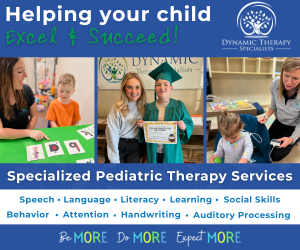Disclosure :: This post is sponsored by Ochsner Baton Rouge.
Warning Signs of Suicide for Children and Teens
 The COVID-19 pandemic and social isolation has taken a toll on everyone’s mental health, including children and teens. A recent report from the Centers for Disease Control indicates that people of all ages are struggling with anxiety, depression and suicidal thoughts during the pandemic. Ongoing school closures; the loss of routines; missing out on milestones, like prom or graduation; and a lack of in-person interaction can be especially difficult for young people. As a parent or caregiver, you may wonder if your child is in danger. The following are a few signs to watch for in friends, family and your child:
The COVID-19 pandemic and social isolation has taken a toll on everyone’s mental health, including children and teens. A recent report from the Centers for Disease Control indicates that people of all ages are struggling with anxiety, depression and suicidal thoughts during the pandemic. Ongoing school closures; the loss of routines; missing out on milestones, like prom or graduation; and a lack of in-person interaction can be especially difficult for young people. As a parent or caregiver, you may wonder if your child is in danger. The following are a few signs to watch for in friends, family and your child:
- Talking about wanting to die or kill oneself
- Researching ways to kill oneself
- Talking about feeling hopeless or having no purpose
- Talking about feeling trapped or being in unbearable pain
- Talking about being a burden to others
- Increasing use of alcohol or drugs
- Self-harm (also known as self-injurious behavior), which includes cutting, burning, scratching or hitting
- New or worsening aggression toward others
- Making plans for suicide
If one or more of the risk factors listed below are present, then the young person is at greater risk for suicidal thoughts, and/or suicide attempts:
- Suicide attempt in the past
- Access to lethal means of suicide, like a firearm
- Recent changes in relationships, such as a romantic breakup or abrupt change in caregivers
- Serious mental health problems, like major depressive disorder, bipolar disorder or substance use problems that have been present for two years or more
- Self-harm in the past
What can parents do?
- Offer to listen to the child or teen during a low-stress time about their thoughts and stress. Listen in an empathetic and nonjudgmental way.
- Safety planning is the most important step. As much as possible, prevent access to means of suicide by removing guns from the house (or make sure guns are fully secured), restrict access to knives and medication, and provide close monitoring of the young person.
- Develop a plan to help the young person reduce the stress and frequency of suicidal thoughts. This can include communication with supportive family, using healthy coping skills and any of the resources below.
- Arrange for help with trusted community members and healthcare providers.
- Review our information and advice about mental health treatment for children here.
- Help them connect. You can start with the National Suicide Prevention Lifeline (1-800-273-8255).
- Reach out to a mental health professional in your area.
Learn more about Psychiatry & Behavioral Health Services at Ochsner Health.


















